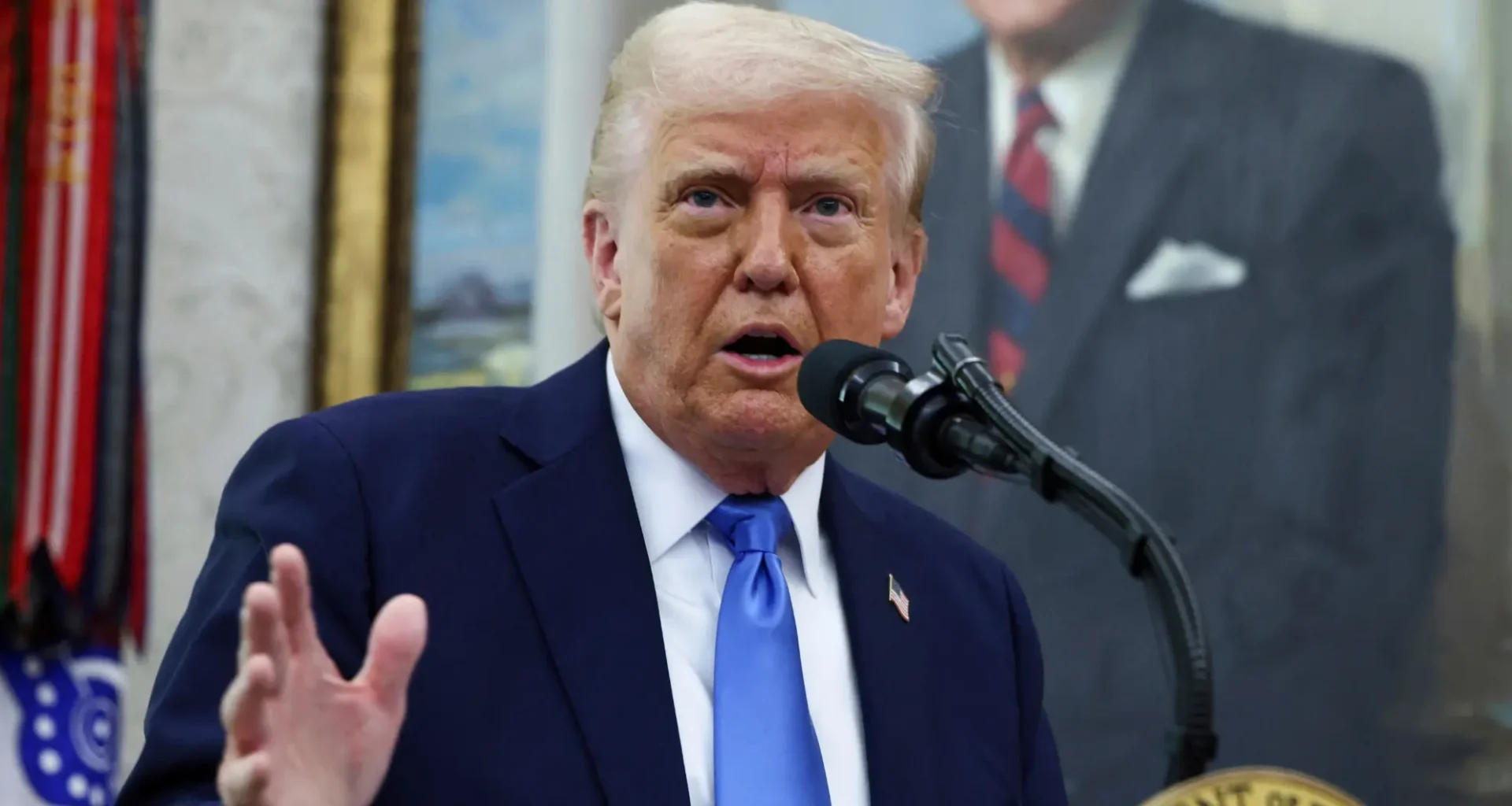A film union is calling on the Canadian government to step in after President Donald Trump is escalating trade tensions further, with plans to impose a 100 per cent tariff on movies made outside of the U.S.
The Sunday evening declaration, made via a post on Truth Social, is part of a broader strategy aimed at addressing what Trump calls the ” very fast death” of America’s movie industry.
“Other Countries are offering all sorts of incentives to draw our filmmakers and studios away from the United States. Hollywood, and many other areas within the U.S.A., are being devastated,” Trump wrote on the platform.
“This is a concerted effort by other Nations and, therefore, a National Security threat.”
He added that the U.S. Department of Commerce and the U.S. Trade Representative would “immediately” begin the process of implementing this tariff, targeting foreign films in a bid to protect domestic production.
Trump’s comments come amid ongoing trade disputes with countries across the globe, as he seeks to impose tariffs on a variety of industries. However, this latest move has raised alarm bells within the Canadian film industry, where a thriving media sector depends on strong cross-border relations and access to U.S. markets.
Read More
The Alliance of Canadian Cinema, Television, and Radio Artists (ACTRA) responded to Trump’s remarks on Monday, urging the Canadian government to take a strong stand in defense of its cultural industries. ACTRA National President Eleanor Noble emphasized that the tariff threat is more than just a trade dispute, but rather a direct attack on the livelihoods of Canadian performers, creators, and workers in the entertainment sector.
“Now is the time to invest in a strong, truly domestic media production industry that can withstand external threats and thrive on the global stage,” Noble said in a press release on Monday.
“ACTRA urges Prime Minister Carney and Canada’s trade team to take a Team Canada approach — one that protects our performers, strengthens our cultural infrastructure, and ensures Canadian stories are seen here at home and around the world.”
The organization, which represents more than 30,000 members, noted that Canada’s film, television, and digital media sector made a significant contribution to the national economy in 2023–24, adding over $11 billion to the country’s GDP. Additionally, the industry continues to drive innovation, create jobs, and enhance Canada’s global reputation in media production.
If the 100 per cent levy is enacted, Canadian films might become more expensive to produce and distribute in the U.S., significantly limiting their international reach. Furthermore, the tariffs could create barriers for Canadian performers and technical staff who frequently work on U.S. productions, further complicating industry partnerships.
Frustrated Canadians aren’t holding back on their opinions.
“It’s absolutely bullsh*t,” Kendra N. said in an interview with Now Toronto.
“We’ve gotten great, great people who work in the industry up here, and we deserve to have a really good connection with the people down south… it’s not fair for Trump to think that he’s above Canadian producers or anything… Canadians and Americans have been working together for forever, and his whole idea of us becoming the 51st state is beyond bonkers.”
Another Torontonian, Ali O., said he feels “saddened” for the actors, producers and the directors that would be affected by the tariffs.
“I feel like the whole thing has been super stupid,” he said.
“These tariffs are not benefiting anyone… it’s gonna affect more smaller artists and smaller studios rather than big names.”
